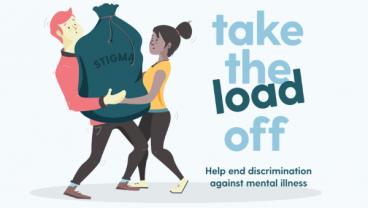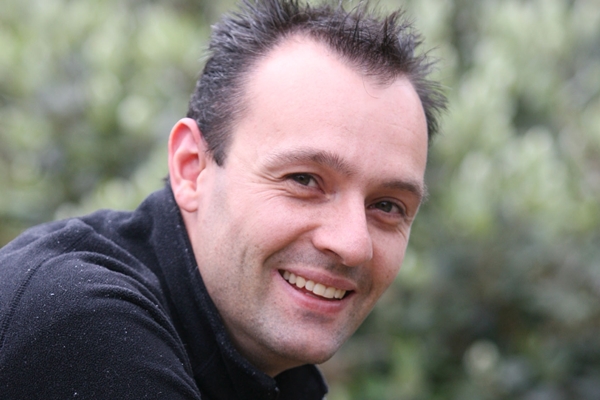Jarno
Blogging to reduce stigma and discrimination
Sharing the stories of people who have experienced mental illness is a powerful way to reduce stigma and discrimination. Cate Reddell and Jarno Noordermeer are two people who are using online technology to do just that.
Cate, who lives in Christchurch, has a diagnosis of borderline personality disorder and lives with fibromyalgia (chronic pain and fatigue) and graves disease (hyperthyroidism), while Jarno, on Auckland’s North Shore, has a diagnosis of bipolar. Both are regular bloggers.
Jarno started blogging five years ago while Cate has been pounding the keyboard for just eight months. “I started blogging for a laugh,” Jarno says. “Everybody else was doing it and I thought it would be a good way to record things for myself. Then it turned into something which others might benefit from.”
Cate says she always wanted to write and someone suggested she start a blog, so she tried it and loves it. She says she doesn’t write her blog, titled Infinite Sadness or Hope every day because, until recently, she has also run Facebook peer support groups. One was for people with borderline personality disorder and another for people struggling with self-harm. “Now that I’ve opted out of running the online groups, I will have more time to write blogs,” she says. “And that’s a good thing. “I wasn’t sure if it (blogging) was going to work for me, but I have found it really good,”
Cate says. “I think what I like most about it is being able to say something that is on my mind to people that are interested in hearing it. “Some bloggers just blog for the sake of blogging. I have no interest in telling people what I had for lunch. I only want to blog when I have got something specific to say.”
Cate says she blogs about all kinds of subjects and often draws inspiration from things she’s read. “It depends what is going on for me and what is on my mind,” she says.
Cate’s main topics are peace, Christchurch earthquake recovery, mental health recovery and physical illness. “I get angry about stigma and discrimination,” Cate says firmly.
“My experience was self stigma. When I was first diagnosed, initially with depression in 1993, I thought it is fine for anybody else to have this but I cannot accept it for myself. It took me a couple of years to decide it was okay for me too,” she says.
“A lot of people write anonymously. I decided I wasn’t going to because of the stigma thing. If I had to hide behind a false name and couldn’t say this stuff coming from me, I am adding to stigma, so I have written in my own name,” Cate says.
She says her experience of borderline personality disorder is not going to “disappear”. “I have it, it is part of me, but I have managed those symptoms so I consider myself pretty much recovered. Recovery for me is about learning to manage my symptoms and live a life I am happy with,” she says.
One of Cate’s blog posts titled Demolishing Stigma is based around the demolition of buildings in Christchurch. “Do we need to demolish it [stigma and discrimination] by blowing it up with explosives, or can we chip away at it brick by brick?” she says. “People think it [stigma and discrimination] is too big, we can’t deal with it. I say I’m using my mind and my blog to reduce stigma,” she says. It is evident from comments posted to her blogs that Cate receives a lot of positive feedback on her writing.
One reader of her Demolishing Stigma blog wrote: “Great post! Your question is a thought-provoking one. I agree with prideinmadness (another reader’s name). In my opinion, I think a little bit at a time might be best. My reasoning for this is due to the fact that for those who have a difficult time with it, they would need time to adjust to the information that is provided to them. Where as [sic] an explosion may leave them in a shock sort of state. Where they shut down and can’t handle everything they are hearing/seeing. A little bit at a time will allow them to adjust slowly to what they hear and see, and hopefully help those of us with the actual illness to be more at ease.”
Cate replies to many of the comments made by readers and encourages them in their own recovery.
Jarno
Jarno says he has turned the comment function off for his blog at Catch42.com, not because he was receiving negative feedback, but because he would rather have personal conversations with people one-on-one via email than an open discussion online. He says most of the emails he receives from readers are positive.
Jarno believes stigma has definitely reduced in the last few years as more people talk about their experiences although he believes it will never be non-existent.
He compares the stigmatisation of mental illness with the common cold. “Everybody knows what a cold is. They’ve had it and they know others who have too. It’s accepted and there’s no real stigma there. Since mental illness has been relatively unknown, there can be a stigma for it. I feel this has changed massively over the years because of several ‘raising awareness’ campaigns. Now that people know more about it, and know friends and family who have experienced mental illness, there is less stigma,” he says.
“I also believe all people with a mental illness can make a difference. We can individually help raise awareness and blogging is a great tool for that.”
Jarno says that, like Cate, he only writes when he has something useful to write about. He loves to encourage others to find their path in life, take control of their destiny and share their time with others. “It always struck me, that those in hospital [with me] were the ones reaching out to me,” he says. “Going out of your comfort zone to give to others in need is very fulfilling.”
He doesn’t only tell his story on his blog; he has also talked to colleagues at his work about his experiences of mental illness. He organised a free seminar on the North Shore in September about nutrition and mental illness – which is now available for online viewing on
– and had his story in the newspaper to promote it. About 70 people attended the seminar and Jarno says there was a positive response. “For me, mental illness has become part of my life, I’ve accepted it ‘as is’. I can work around it now and I’m grateful for the lessons I am learning from it. I hope others will do the same,” he says.
Photo: North Shore Times
Good reads

Editorial
Five ways to reduce discrimination
Mental illness discrimination has a long, pervasive history. Many widely held negative... Read more

Community Grants
Ivan's project: "You Are Not Alone"
You Are Not Alone is a video and poster campaign produced by... Read more

Ngā Kōrero and mental distress
What young people want
People under the age of 25 make up around 33% of our... Read more

Pacific models create non-discriminatory environments
Susanne
Susanne Cummings' journey started almost 20 years ago when she lived through... Read more

Editorial
Take the Load Off
Take the Load Off is an online campaign to reduce mental illness... Read more

Rainbow identities and mental distress
Discrimination, compounded
Moira Clunie is a community advocate whose work focuses on making New... Read more

